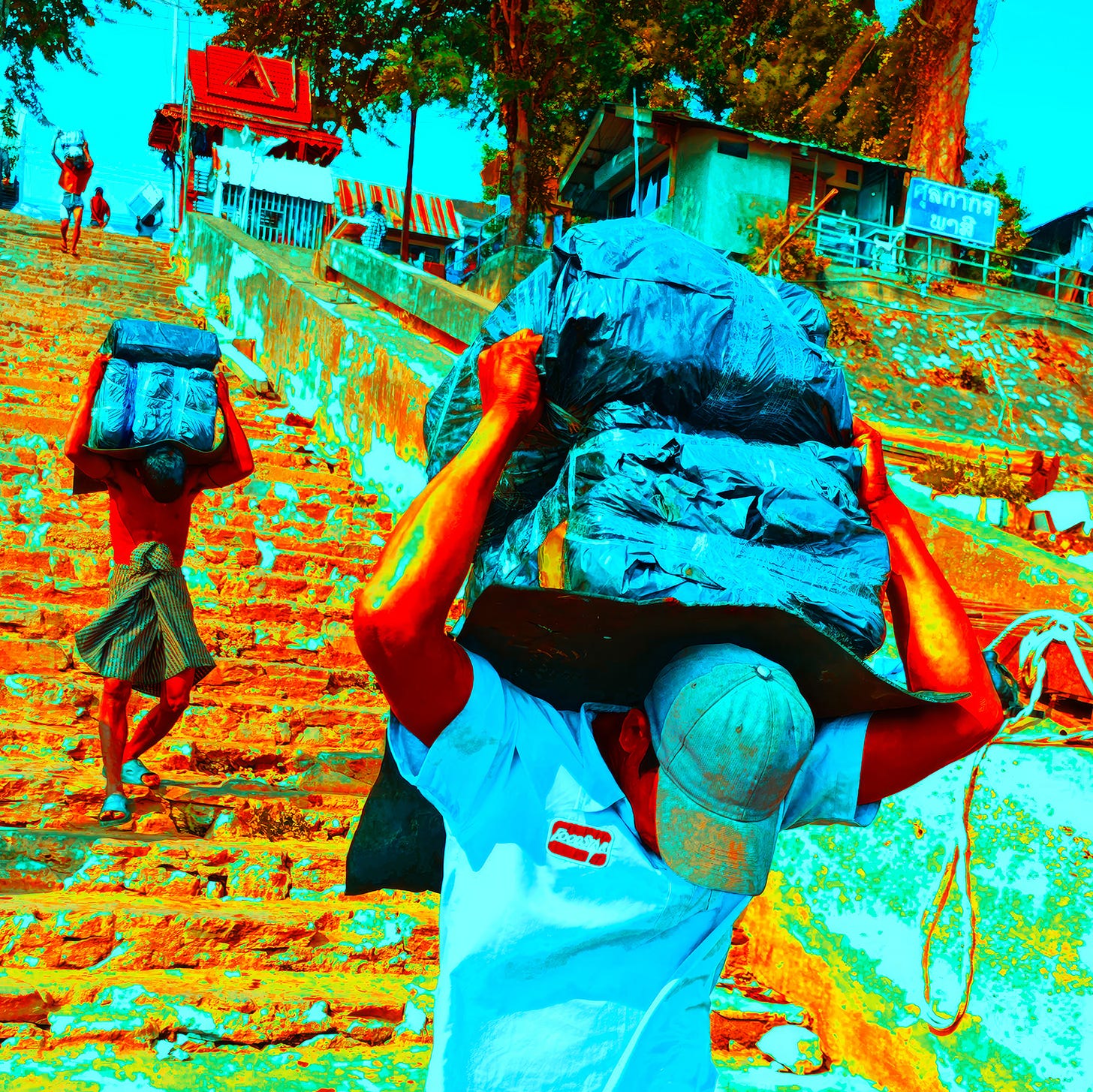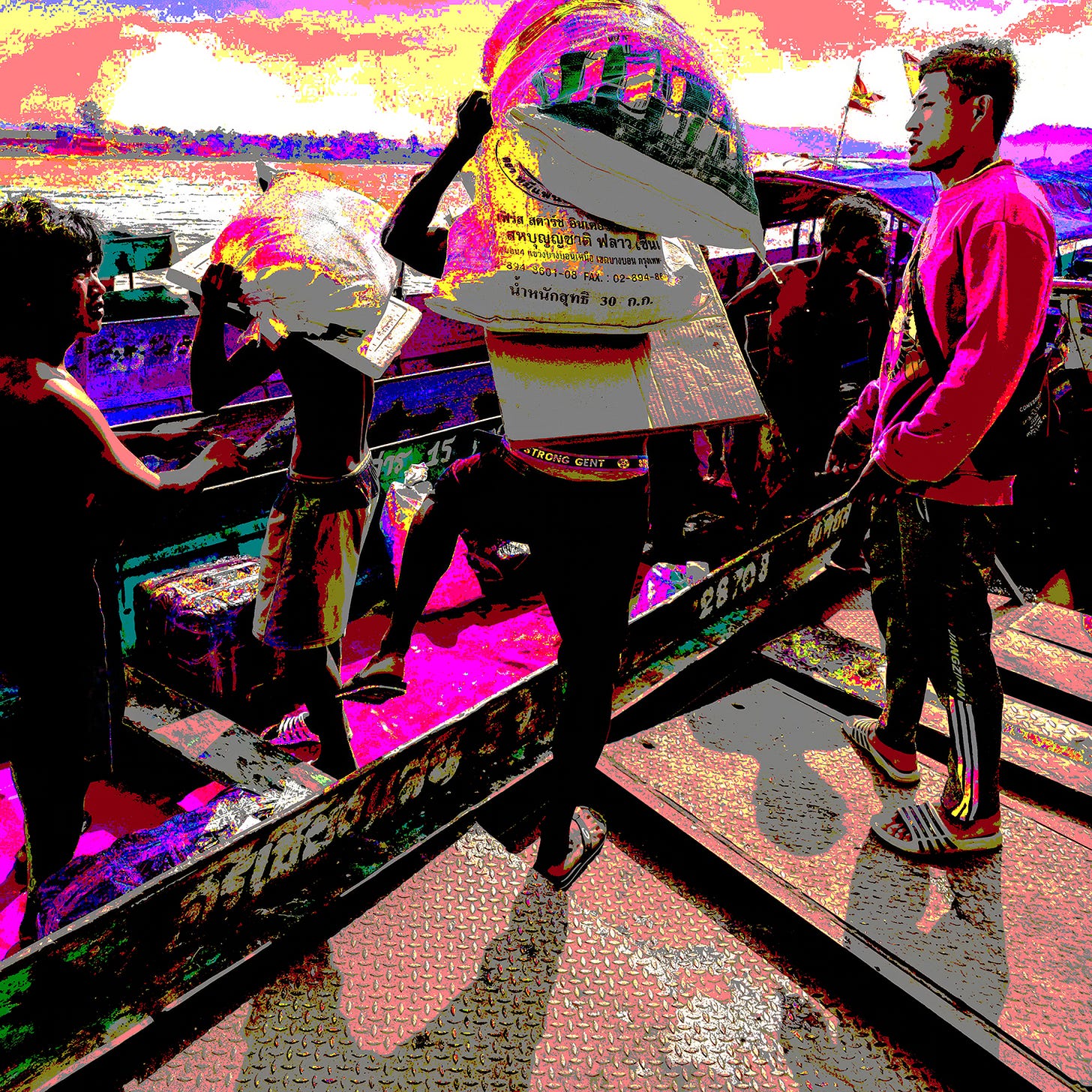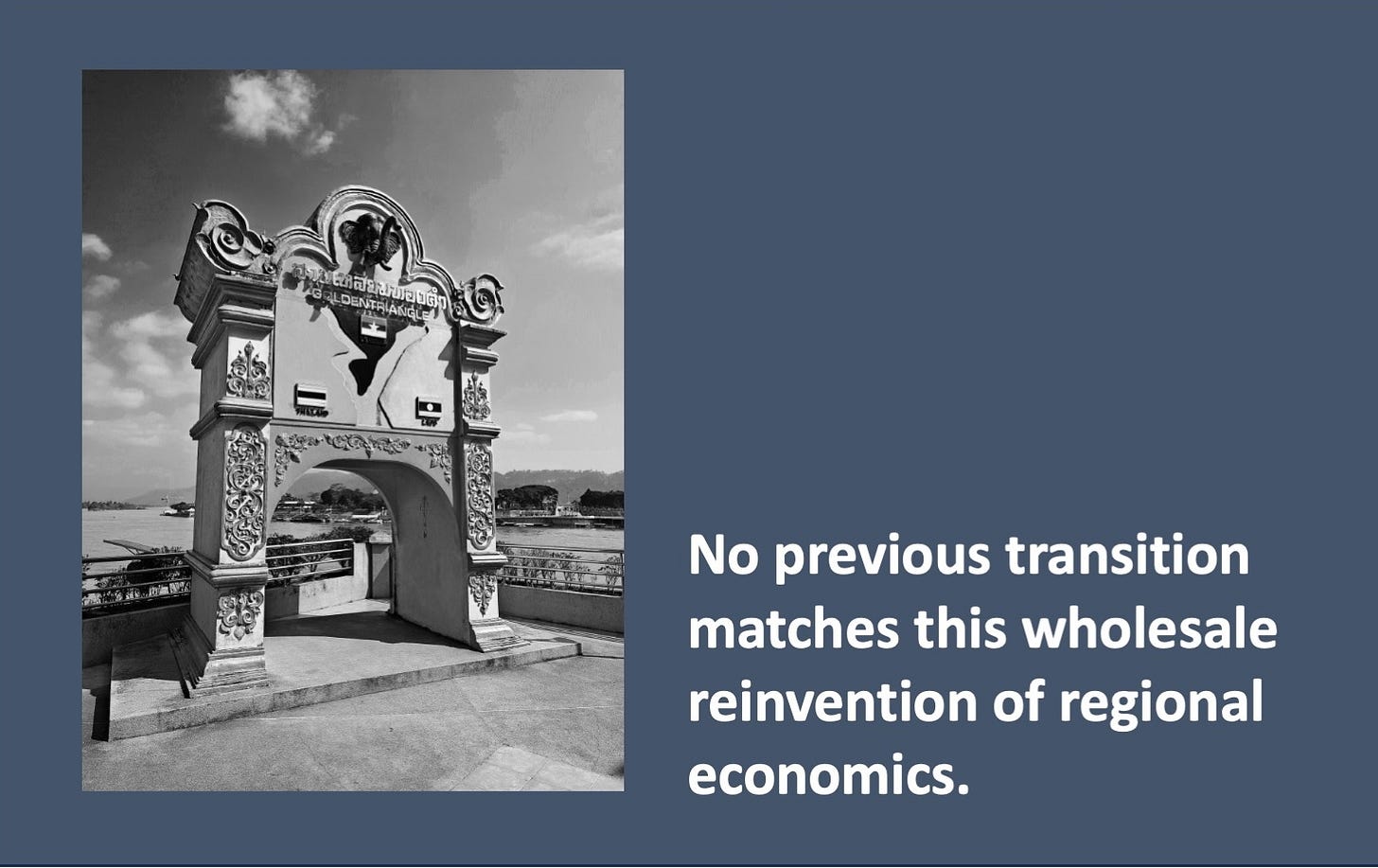X. Labyrinth of riverine players
Part 10 of an international solo on ”Lanna“ by Lim Siang Jin. This online exhibition, comprising 20 parts, is from May 6 to June 5, 2025
THE MEKONG RIVER creates a labyrinthine web of stakeholders whose survival depends on collaboration. In the Golden Triangle, labourers, handlers, merchants, financiers, village chieftains, border officials, smugglers, and consumers form an ecosystem where each needs the others. Prosperity distributes unevenly—manual workers risk lives for minimal rewards while those controlling capital and regulation claim larger shares. Local governments and international agencies alternately facilitate and restrict this flow of goods. Despite modernisation, these interdependencies endure—all stakeholders remain bound to the river, their fates intertwined despite unequal rewards. Speedboats laden with cargo represent not just commerce but a delicate balance of power negotiated across shifting boundaries.
Coolies of the Mekong
BOAT LABOURERS on the Mekong work tirelessly, carrying heavy loads on their shoulders and steering speedboats packed with goods. They ferry legal cargo—rice, fuel, construction materials—alongside illicit trade in narcotics and stolen wildlife. The river is their livelihood, yet they live on the edge of survival. They endure long hours and dangerous conditions, dependent on middlemen for work. Many have no alternative, trapped in cycles of debt and obligation. Though modernisation has changed the nature of transport, their fundamental challenges remain unchanged. Their work remains essential yet largely invisible to the wider economic networks they support.

Masters of the network
HANDLERS orchestrate the Mekong trade, controlling boats, wages, and cargo. They link merchants to labourers, ensuring goods keep moving through the intricate river network. Labourers remain in a precarious position, their daily survival dependent on these powerful intermediaries. Boat captains and labour managers enforce their will, deciding who works and who waits on the riverbanks. While speedboats have replaced traditional vessels, the hierarchy of power endures. Technology has evolved, but for those at the bottom, the power dynamic has changed little. Until now. The future may tell a different story—one shaped by new voices, new systems, and perhaps, new order.

In the face of disruption
THE GOLDEN TRIANGLE faces a sea change unlike any in its history. BRI’s arrival signals not evolution but revolution—a system shock of unprecedented scale and velocity. The following is a likely scenario: Centuries-old trade patterns will vanish, replaced by container terminals and digital logistics. Thousands of river workers face displacement as algorithms and automation render their skills obsolete. Villages that survived on boat traffic will empty as youth migrate to new transportation hubs. The labyrinth of interdependent stakeholders—built on personal relationships and tacit knowledge—confronts dissolution. No previous transition matches this wholesale reinvention of regional economics. The river civilisation itself stands at the brink of transformation.
For more information, click on links: Stephen Menon, O Art Space Gallery, Lim Siang Jin and his art, here and here. For a detailed acknowledgment, click here




